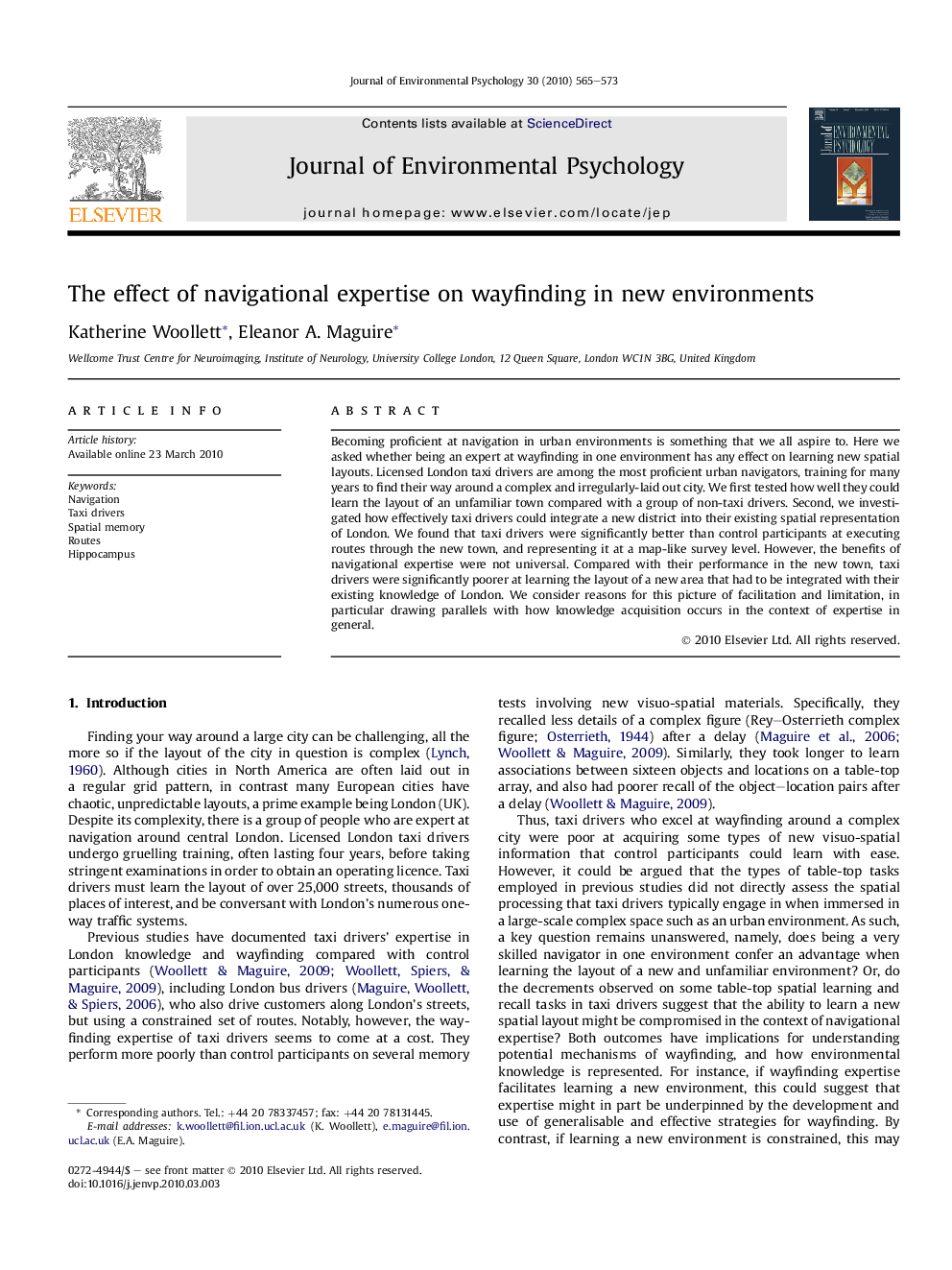| Article ID | Journal | Published Year | Pages | File Type |
|---|---|---|---|---|
| 7246735 | Journal of Environmental Psychology | 2010 | 9 Pages |
Abstract
Becoming proficient at navigation in urban environments is something that we all aspire to. Here we asked whether being an expert at wayfinding in one environment has any effect on learning new spatial layouts. Licensed London taxi drivers are among the most proficient urban navigators, training for many years to find their way around a complex and irregularly-laid out city. We first tested how well they could learn the layout of an unfamiliar town compared with a group of non-taxi drivers. Second, we investigated how effectively taxi drivers could integrate a new district into their existing spatial representation of London. We found that taxi drivers were significantly better than control participants at executing routes through the new town, and representing it at a map-like survey level. However, the benefits of navigational expertise were not universal. Compared with their performance in the new town, taxi drivers were significantly poorer at learning the layout of a new area that had to be integrated with their existing knowledge of London. We consider reasons for this picture of facilitation and limitation, in particular drawing parallels with how knowledge acquisition occurs in the context of expertise in general.
Related Topics
Social Sciences and Humanities
Psychology
Applied Psychology
Authors
Katherine Woollett, Eleanor A. Maguire,
